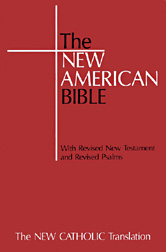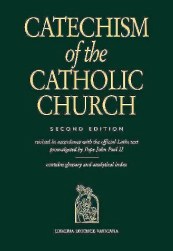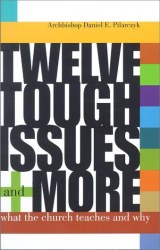Christian Ethics | Home
Syllabus | Periods | Class work & Homework | Handouts | Guidelines & Formats | Internet Resources | Contact Teacher
Syllabus
DeMatha Catholic High School, 4313 Madison Street, Hyattsville, MD 20781 - USA
|
||
Course Description
|
Grade 11 (Junior Year) --- 2 semesters, 1 credit
|
|
 |
Ethics provides humans with a framework within which to interpret, understand and act in the world. Christian Ethics provides that structure by drawing upon our collective lived human experience informed by Sacred Scripture, tradition, and the social teaching of the Church. Grounded in the fundamental belief of the sacredness and dignity of life, Christian Ethics establishes the foundation for the individual and the community to live and act justly.
The course seeks to acquaint the student with the richness of the Catholic-Christian ethical tradition in dialogue with pluralistic perspectives of contemporary secular society. The course incorporates an interdisciplinary approach, integrating the social sciences and history with theology. The material covered explores factors affecting ethical decision-making: moral maturity, competing methodologies, formation of the conscience, theological understanding of personal and moral sin. Inherently dynamic, ethics invites application. The practical aspect is explored through examination of moral dilemmas and contemporary issues.
|
|
The course focuses on the following areas of ethical concern:
|
||
Required Texts:
|
||
Introduction to Catholic Ethics
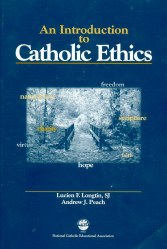 |
||
Archbishop Daniel E. Pilarczyk
|
||
Goals & Objectives: The course seeks to enable the student to:
Develop and internalize a healthy respect for the inherent dignity of the human person;
Ultimately, the goal of the Christian Ethics course is to enable the student to understand, evaluate and critique ethical issues and perspectives in the process of informing his own conscience.
Instructional Methods will include prayer, interactive multi-media lecture, small/large group discussions, cooperative learning, and student presentations.
|
||
Supplemental Texts &
Selected Resources
|
Miscellaneous Handouts
 |
Multimedia Demonstrations
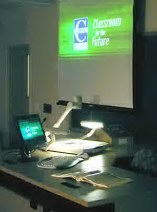 |
Class Policies
|
||
Grading
The student's quarter grade will be determined as follows:
|
||
10%
|
||
10%
|
||
25%
|
||
25%
|
||
30%
|
||
Midterm and Final Examinations will count as 30% of the Semester Grade.
|
||
The Final Course Grade will be determined by averaging the first and second semester grades.
|
||
Grading Scale
|
|||||
The grading scale of this course will be as follows:
|
|||||
A 93-100
A- 90-92
|
B 85-89
B- 80-84
|
C 75-79
D 70-74
|
F Below 70
|
||
Academic and Moral Integrity
|
|||||
It is the teacher's assumption and expectation that all work the student turns in or presents is his own.
Cheating on tests, copying homework and plagiarism will not be tolerated. Academic dishonesty will be dealt with according to school policy. As a gentleman and scholar, Christian behavior is required in class.
August, 2007
|
|||||
